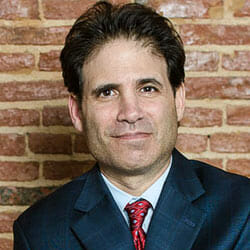Legionnaires’ Disease Information
Many may not recognize the term “Legionnaires’ Disease,” but in fact it affects between 10,000 and 50,000 Americans every year. Caused by the bacteria Legionella pneumophila, Legionnaires’ disease is a form of lung infection that can include pneumonia. It gained its name in 1976 after attendees of an American Legion convention in Philadelphia, Pennsylvania contracted pneumonia en masse. The bacterium that was discovered after this outbreak was named Legionella in honor of the Legionnaires at the convention.
Legionnaires’ disease is most common in the summer and fall months, but may occur year-round. Because its symptoms are similar to those of pneumonia, it is often mistaken or misdiagnosed. Symptoms include cough, chills, and high fever. Legionnaires’ disease is diagnosed through blood, urine, and sputum tests in addition to chest X-rays. A less-serious form of Legionnaires’ disease is known as Pontiac Fever and has similar symptoms which subside on their own within a few days.
Patients contract Legionnaires’ disease when they inhale vapor or mist that has bacterial contamination. Usually this occurs due to bathtubs, whirlpool spas and hot tubs, humidifiers and plumbing systems that have been contaminated. While Legionnaires’ disease is bacterial in nature, it cannot be passed from person to person, but rather is only contracted by breathing in contaminated air. The Legionnaires disease often occurs in hospitals, cruise ships, and air-conditioned hotels, all of which can have air or plumbing systems that breed bacterial infection.
Legionnaires’ is an extremely serious disease, killing between five and 30 percent of all patients. Antibiotic drugs are usually indicated in the treatment of Legionnaires’ disease. Though the disease usually preys upon the elderly and those with weak immune systems, it can also strike smokers, transplant patients, and even healthy individuals.
Hotels, hospitals, convention centers, and other facilities that fail to properly maintain hot tubs, air conditioning systems and humidifiers can be held liable when a Legionnaires’ disease outbreak occurs. If you are the victim of Legionnaires’ disease, inform the Centers for Disease Control (CDC) as soon as possible and consider seeking legal representation. A successful Legionnaires’ disease lawsuit can produce significant compensation for the costs of treating your illness and any long-lasting effects or deaths that result.
Baltimore personal injury lawyer Steven H. Heisler is experienced in the representation of personal injury cases, including those related to Legionnaires’ disease. Steve Heisler is one of the very few attorneys in the country that handles Legionnaires’ disease lawsuits. Steve has successfully represented cases for Legionnaires’ disease nationwide. Contact Steven H. Heisler today for a free, no-obligation case consultation to find out if you have a valid Legionnaires’ disease claim.
Recent Case Results
Case Type: Legionnaires’ Disease / Settlement: Confidential Amount
Steve represented two elderly gentlemen who contracted Legionnaires’ Disease in 2003 at a hotel in the Baltimore metropolitan area. The illness required both men to spend time in intensive care and resulted in permanent injuries. Both men have since died. Heisler sued the hotel contending that it was negligent in failing to properly monitor it’s water system for legionella bacteria. The case settled in mediation for a confidential amount.
Case Type: Legionnaires’ Disease / Settlement: $600,000.00
Steve and co-counsel represented an educator in his 60’s who contracted Legionnaires’ Disease while a guest at a large Hotel in the Southeast part of the United States. Steve’s client was in a coma requiring ventilator assistance for several weeks. He now has slight neurological-cognitive defects as a result of the ordeal.

Attorney Steve Heisler
Steve Heisler decided in 1996 that he was going to focus his law practice exclusively on injury cases. Since then, he has been representing injured people against insurance companies, disreputable medical practitioners and Big Pharma, and doing it with compassion, honesty and level-headed rationality. [ Attorney Bio ]

